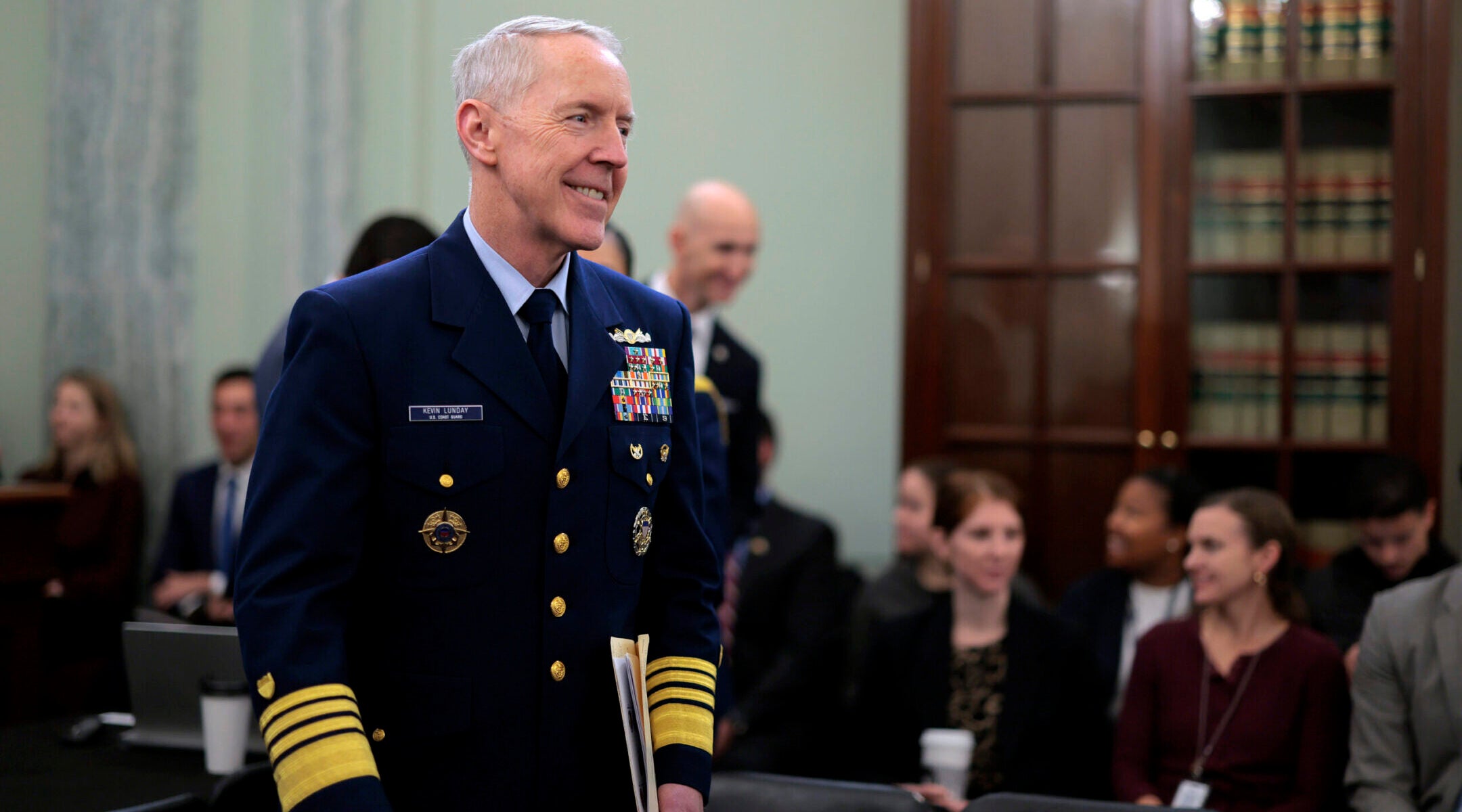After outrage, Coast Guard says it will continue to define swastikas as hate symbols
New regulations had said swastikas and nooses, symbols of antisemitism and racism, were merely ‘potentially divisive’

Admiral Kevin Lunday prepares to testify during his confirmation hearing to be the commandant of the U.S. Coast Guard, Nov. 19, 2025, in Washington, D.C. Photo by Heather Diehl/Getty Images
(JTA) — The Coast Guard says it will continue to bar the display of swastikas and nooses after drawing fierce criticism following the revelation of new rules that would redefine the symbols as “potentially divisive” rather than icons of hate.
The regulations, first reported Thursday by the Washington Post, permitted the symbols to be displayed in Coast Guard members’ private quarters and said the would be barred from public spaces only if they undermined “good order and discipline, unit cohesion, command climate, morale or mission effectiveness.”
Following the Washington Post report, the Coast Guard’s top official said the regulations had been mischaracterized and that promotion of the symbols “will be thoroughly investigated and severely punished.” Soon, new regulations were issued that said swastikas, nooses and other symbols of hate would be prohibited in all Coast Guard “workplaces, facilities, and assets.” It did not address members’ private quarters.
The Washington Post’s report about the new regulations — which also include the removal of gender identity as a protected characteristic and a higher bar to prove harassment — had elicited wide concern from Jewish groups.
“The swastika and the noose aren’t ‘potentially divisive.’ They are explicit symbols of antisemitism and hate,” tweeted Jonathan Greenblatt, the CEO of the Anti-Defamation League. “Treating them as anything less than hate symbols is a dangerous mistake.”
Rabbi Jonah Dov Pesner, who heads the Reform movement’s political arm, the Religious Action Center of Reform Judaism, wrote to the Coast Guard’s acting commandant, Admiral Kevin Lunday, to offer “the strongest objection” and call for a reversal.
“The decision to weaken these standards is an indelible stain on the Coast Guard and a violation of the good that our nation stands for,” he wrote. “I urge you in the strongest terms to immediately rescind this policy and return these symbols of hate to the forbidden category in which they belong.”
The Coast Guard is a branch of the U.S. armed forces. Lunday took his role in January after President Donald Trump fired his predecessor, the first woman to helm the Coast Guard, on his second day in office.













